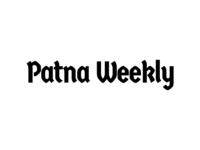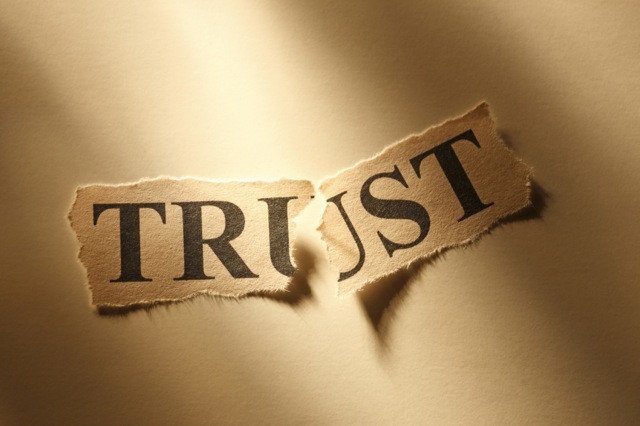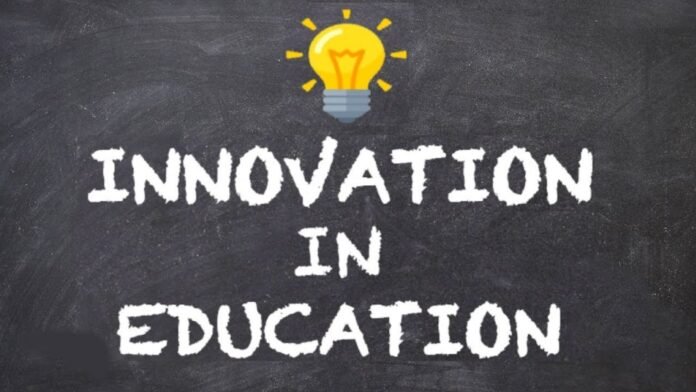Jacob Thomas, a Kansas farmer, put the problem in stark terms after federal cuts to a school lunch program: “For the first time in my life, I don’t trust the government to follow through on their word.”. His frustration – previously unimaginable in a farming town – reflects a broader global collapse in public faith and highlights crisis of trust.
Surveys now show that a majority of people worldwide suspect their leaders and institutions of falsehoods: 57% of respondents in one Edelman study believed that “government leaders, business chiefs and journalists are spreading falsehoods or exaggerations”.
The United Nations has even warned of a “trust deficit” threatening social and economic progress.
In advanced democracies trust is near historic lows: only about one in five Americans now have faith in their federal government, and comparable discontent is seen in Britain, India, Brazil and Germany. This report traces the long downward trajectory of institutional trust, examines how it has recently been eroded by crises (from COVID-19 to digital misinformation), compares key countries, and—crucially—highlights citizen voices and expert analyses.
We then explore concrete efforts to restore confidence: legal reforms, transparency initiatives, civic engagement, and technological fixes that could rebuild the credibility institutions need to function.
Historical Context of Declining Trust i.e Crisis Of Trust
Trust in institutions was once taken for granted. Mid-20th-century polls show public confidence in government and media routinely above 70%. But over the past five decades this foundation has crumbled. Long-term data reveal a dramatic slide: for example, a UN analysis reports that U.S. trust in government fell from roughly 73% in the late 1950s to around 24% by 2021.
Western Europe shows a similar pattern, with trust in national governments sinking from well over 60% in the 1970s to the 20–30% range today. In Britain, the latest survey by the British Social Attitudes project found public confidence in elected officials “as low now as it has ever been over the last 50 years”. The COVID-19 pandemic briefly boosted trust in some governments, but that “rally-round-the-flag” effect quickly faded to pre-pandemic levels or below.
Scholars note that each major scandal or crisis – from the Watergate cover-up and Vietnam protests to the 2008 financial crash – has chipped away at faith in institutions. Today’s digital age adds new layers of doubt: sensors, social media and global news have exposed failures in real time, while spreading conspiracy theories that deepen cynicism. The overall picture is a long, steep decline in social trust, with very little sign of recovery.
Government and Political Institutions
Trust in government has plummeted in nearly every major country. United States: Only about 22% of Americans now say they trust the federal government “just about always” or “most of the time,” according to Pew Research Center (May 2024). Approval ratings have trended similarly low: in 2023 Gallup found only 26% confidence in the U.S. presidency and 27% in the Supreme Court.
Partisan divides magnify the crisis: for example, just 12% of Republicans trust the media, compared with 54% of Democrats – and similar splits plague assessments of Congress and the courts. Many Americans like Kansas farmer Jacob Thomas describe broken promises and gridlock. United Kingdom: Britons are equally disillusioned. A June 2024 Guardian report on the latest British Social Attitudes survey noted 79% of people were dissatisfied with how Britain is governed – the highest in decades – and concluded “people’s trust in governments and politicians… is as low now as it has ever been”.
Issues like Brexit fallout and political scandals (e.g. “Partygate”) have left sharp resentments. Germany: Surveys show only about 27% of Germans believe the state can fulfill its responsibilities – a new low. Civil service union leader Ulrich Silberbach called the decline “alarming,” stressing that citizens simply want “an efficient” government that does its job. In a 2023 poll by Forsa, Chancellor Olaf Scholz’s personal trust rating fell to 20%, with only 21% trusting the federal government and 32% trusting parliament. (Interestingly, trust in institutions perceived as independent – Germany’s Constitutional Court (74%) and military (53%) – remains much higher.)
India: In sharp contrast, many developing democracies still report relatively high institutional trust. Gallup noted in April 2024 that “confidence in the government, institutions and infrastructure remain high” in India, reflecting broadly positive popular sentiment. That said, some Indians express deep skepticism of media or courts, and localized issues (e.g. farmers’ protests or press crackdowns) hint at underlying tensions.
Brazil: Trust in Brazilian institutions has eroded amid pandemic mismanagement and political turmoil. Gallup found that by late 2022 fully 67% of Brazilians had no confidence in the honesty of their upcoming elections, highlighting fears of corruption or fraud. As one analyst put it, decades of unfulfilled promises have “consistently” dragged down confidence across Brazil’s government bodies. In summary, across these key countries ordinary people today often view politicians and bureaucracy with suspicion.
One U.S. think-tank report notes Americans’ trust in civic systems “has sunk to a new low” after years of divisive politics. When citizens like Jacob Thomas ask, “Do you want the truth, or what we tell people?”, it reflects just how deeply faith in leaders has been shaken.
Media and Disinformation
Public trust in news organizations and social platforms has also collapsed. In the U.S., only about 31% of adults say they trust the mass media “to report the news fully, accurately and fairly,” according to Gallup (Oct 2024) – a record low. (By contrast, trust was 68–72% in the 1970s.) Political polarization drives a massive gap: just 12% of Republicans express that trust (vs. 54% of Democrats).
In the UK, trust in newspapers and broadcasters has tumbled. The Reuters Institute found British media trust at only 31% in late 2023 – lowest of 28 nations surveyed – down from roughly 45–50% a decade earlier. Notably, even the BBC and leading papers have seen trust ratings fall dramatically. A 2022 Press Gazette analysis of Reuters Institute data reported the BBC’s trust score dropping from 75% (2018) to 55% (2022), and the Times of London falling from top-ranked to 43%. Tabloid trust is worse: just 12% of Brits said they trusted The Sun.
Globally, the modern media environment fuels this distrust. Social media and partisan outlets amplify misinformation, leading many to dismiss “the news” wholesale. A USA TODAY/Ipsos poll (2018) found Americans trust other tech companies far more than Facebook with personal data – only 41% trusted Facebook versus 66% for Amazon or 62% for Google.
Such data breaches and algorithmic manipulations feed skepticism about the motives of tech-driven media. Researchers speak of a “Truth Decay” in public life: people increasingly blur fact and opinion, trusting only news that confirms their biases. Even Yale historian Timothy Snyder warns bluntly: “Believe in truth. To abandon facts is to abandon freedom.” This crisis of information means many citizens say they will avoid news altogether rather than risk being misled.
Yet journalists and watchdogs are fighting back. The News Literacy Project and others emphasize transparency: credible outlets now routinely publish source documents, fact-check claims, and explain editorial choices. Platforms like Facebook and Twitter have at least acknowledged the problem, launching third-party fact-checking partnerships and labeling false content.
Governments have also taken modest steps: countries from Germany to Brazil now fund public media literacy campaigns. (Nevertheless, some proposed censorship laws raise alarms about governments limiting speech in the name of “trust.”) In short, trust in media is at historic lows on all sides of the debate, and combating disinformation is now seen as urgent to protecting democracy.
A recent survey found only 31% of Britons now trust news from major outlets. This decline has pushed many people toward social media “echo chambers,” deepening skepticism of journalists.

Business, Big Tech and Corporate Trust
The corporate world – including major businesses and tech platforms – has also faced a credibility crisis. Paradoxically, surveys still find higher trust in business (globally ~62%) than in government or media. However, that soft trust conceals volatile expectations and generational divides. Only about a third of Americans (35%) express confidence in “Big Business,” and just 25% trust large technology companies.
Landmark scandals have undermined faith in firms: from Volkswagen’s emissions fraud to Facebook’s Cambridge Analytica fiasco, countless stories have shown how corporate leaders can mislead consumers. A Reuters/Ipsos poll in 2018 underscored this: only 41% of Americans trusted Facebook to obey privacy laws, far below the 66% who trusted Amazon. Recent incidents – such as data breaches, price-fixing scandals, or perceived “greenwashing” – continue to feed distrust in companies of all stripes.
At the same time, global opinion now demands that business do more on social issues. The 2023 Edelman Trust Barometer noted that business leaders face “great expectations”: for example, 65% of people worldwide agreed CEOs should take the lead on improving social justice, even if it means wading into politics. In effect, corporations are judged not only on profits but on ethics and purpose.
As one Edelman insight put it, “Business is the only institution seen as competent and ethical” today, but citizens want firms to “hold divisive forces accountable” and champion facts. Major brands have responded with sustainability pledges, diversity initiatives, and social campaigns – efforts aimed at rebuilding consumer trust. However, critics note that these can backfire; if the public sees them as insincere “wokeness marketing,” they may erode confidence further.
To regain trust, many companies now emphasize transparency. Pharmaceutical firms publish clinical trial data; tech platforms under pressure are being forced to comply with new privacy regulations (e.g. GDPR in Europe, consumer data laws in various countries). Industry groups talk openly about self-regulation: for instance, the International Fact-Checking Network (IFCN), supported by major news and tech companies, works to counter viral falsehoods.
Nevertheless, activists argue that stronger government oversight is needed – antitrust enforcement, whistleblower protections, and penalties for corporate fraud. The corporate trust landscape remains a work in progress: while some consumers still see business as the last bastion of reliability, others remain deeply skeptical that companies will prioritize the public good over the bottom line.
The Courts and Judicial System
Public confidence in the justice system has not been spared. In the United States, judges and courts have seen notable declines in trust. An AP-NORC poll (July 2024) found only 44% of Americans said they had “a great deal” or “a fair amount” of confidence in the Supreme Court – the lowest level since the survey began in 2005.
Trust dropped precipitously after contentious rulings: it was 68% in 2019, then fell to 44% in 2024. Many observers connect this to perceptions that the justices have become partisan or self-interested. One analysis pointed out that after the 2022 Dobbs decision overturning Roe v. Wade, public trust in the Court dropped by 22 points.
Similarly, in the UK and other countries, surveys find less confidence in courts than in times past, as citizens fear unequal justice or slow proceedings. Notably, U.S. Gallup data shows Americans are more likely to trust their police (43%) or even small business (65%) than large institutions like banks (25%) or Congress (15%).
Concerns about the judiciary often mirror those in other sectors: secrecy and lack of accountability. Pollsters have found that average citizens believe “the system is stacked against them” and operate under different rules than elites. One U.S. focus group study commissioned by court administrators noted a widespread view that “there are two systems of justice in America – one for the wealthy and well-connected and one for everyone else”.
In Germany, by contrast, trust in courts remains high: an Forsa poll reported 74% of Germans trust the Constitutional Court. This suggests that when the judiciary is seen as independent and fair, it can maintain credibility even if the rest of government falters.
To address the legitimacy crisis, judicial bodies have begun outreach and reform. In September 2024, the National Center for State Courts (NCSC) published a guide urging U.S. courts to engage communities more deeply, after surveys showed trust in state courts dropped from 62% (2014) to 46% (2023).
NCSC’s report emphasized listening and communication: “We have refined a strategy to better communicate the important work of the courts,” said a committee co-chair. At the federal level, lawmakers and bar associations have pushed for a binding Supreme Court code of ethics. In 2023 the American Bar Association backed a resolution for a mandatory code and disciplinary process for the justices.
Congress introduced the Supreme Court Ethics, Recusal, and Transparency (SCERT) Act to create an ethics counsel and investigation panel, after critics noted the Court’s own new code (adopted Nov. 2023) was merely aspirational.
These legal measures – along with calls for televised or streamed hearings to make judges more visible – aim to restore faith that courts operate fairly. In short, the judiciary’s credibility crisis is acknowledged at the highest levels, and concrete reforms (from codes of conduct to community outreach) are being proposed to rebuild confidence.
Religious and Other Institutions
Institutions of faith have not been immune to skepticism. In the United States, for example, Gallup found that only about 32% of Americans had a “great deal” or “fair amount” of confidence in churches or organized religion – roughly on par with trust in the medical system (34%) and just above beleaguered institutions like labor unions or Congress.
Similar patterns appear elsewhere in the West: growing secularism and high-profile scandals (from clerical abuse to political entanglements) have eroded the moral authority of religious bodies. In countries where religion plays a larger role, trust levels remain higher on average, but even there followers express doubts about leadership (for instance, outcry over various church missteps has led to internal reform movements in some nations).
Faith-based organizations have a long path to rebuilding trust. Many advocates argue that increased transparency about finances and governance – as well as stronger accountability for wrongdoing – are essential first steps. Some churches and religious groups have taken out advertisements or held town halls to address scandals, and many now emphasize humanitarian work to demonstrate integrity.
Interfaith councils and dialogues have also been proposed as ways to show unity and openness. While systematic studies of religious trust are rarer, it is clear that in general people’s ethical concerns have spilled over into their views of churches, mosques, temples and synagogues. As one scholar put it, any institution claiming moral leadership must be prepared to submit to stringent accountability or risk losing public confidence entirely.
The Impact: Polarization, Unrest and Policy Gridlock
The breakdown of trust is not just an abstract metric – it has tangible consequences for democracy and society. Deep distrust fosters polarization and social fragmentation. Edelman’s research notes that over half of people worldwide (53%) feel their country is more divided today than in the past. In the U.S., recent polling shows most Americans would hesitate to live next door to or work with someone from the opposite political persuasion.
This social schism makes collective action on big issues nearly impossible. For example, a majority consensus was crucial for effective pandemic policies; where that trust collapsed, vaccine hesitancy and rule-breaking soared. Indeed, analysts directly link the trust deficit to political violence: as Stanford scholars observe, the Capitol insurrection of Jan. 6, 2021 “was the product of that fragile civility, exploited by former President Trump,” after long fanned by distrust. The photograph below captures that moment when conspiratorial loss of faith in the 2020 election spiraled into a violent challenge to democracy.
Hundreds of people breached the U.S. Capitol on Jan. 6, 2021, believing falsely that a stolen election had delegitimized government. This event starkly illustrates how eroded trust in institutions can translate into unrest and violence (Reuters).
Distrust also has economic and policy impacts. When businesses and consumers do not believe official information, markets become volatile – as the World Bank notes, economic recovery depends partly on restoring trust in governance. Entrepreneurs report that corruption and bureaucracy chase investment away from countries where leaders lack legitimacy. Civic institutions from schools to civil services can become demoralized if public support vanishes, leading to poorer outcomes (e.g. worse health or infrastructure).
The UN has emphasized that success on issues from poverty reduction to climate action requires robust public trust. In short, falling trust can create a vicious cycle: corruption and gridlock breed further distrust, which in turn deepens societal dysfunction.
Restoring Trust: Proposals and Progress
Despite the grim landscape, many experts and communities are actively seeking solutions. In practical terms, rebuilding confidence means making institutions more transparent, accountable and responsive. Key reform proposals and initiatives include:
Legal and Policy Reforms – Many jurisdictions are strengthening rules to check power. Proposed legislation like the U.S. Supreme Court Ethics Act would institute an enforceable code of conduct and an independent investigation process for justices. Governments in India and elsewhere have enacted stricter anti-corruption laws and asset-disclosure requirements for officials.
Campaign finance reforms (in some U.S. states) and lobbying transparency efforts (as in the UK’s recent debates) aim to reduce undue influence. In the corporate sector, regulators are enforcing new accountability: recent whistleblower programs and harsher penalties for fraud indicate a trend toward tougher oversight.
Transparency and Accountability Mechanisms – Opening the books is a proven trust-builder. Sunshine laws and freedom-of-information acts (FOI) have been expanded in many countries to allow citizens and journalists to scrutinize government decisions. Data portals now publish budgets, spending and performance metrics online. Similarly, watchdog NGOs and audit institutions are increasingly empowered: for example, citizen audit programs in Latin America put budget data in laymen’s hands.
News organizations have also taken steps: innovative outlets often publish the sources and reasoning behind stories to demonstrate credibility. The International Fact-Checking Network (backed by media and tech companies) has grown to coordinate verification of viral claims worldwide. All these moves – from fiscal transparency to open trial streaming – send signals that institutions have nothing to hide.
Civic Engagement and Education – Trust rebounds when people feel involved. Policymakers are experimenting with “co-governance” models that bring ordinary citizens into decision-making. Singapore and Colombia have used citizen assemblies to help draft policy; the U.S. and Europe see new calls for public participation in rule-making. Experts argue that empowering grassroots groups and holding town halls (especially in marginalized communities) can repair faith.
Education is also crucial: media literacy programs in schools and online (such as News Literacy Project trainings) are equipping the next generation to detect fake news. Community policing initiatives and local health committees (which emerged during the Ebola and COVID crises) have shown that trust rises when people see familiar faces working with officials. The underlying lesson is clear: institutions must not only provide services but actively listen and respond to citizens’ needs.
Technological and Media Solutions – Ironically, technology can both undermine and restore trust. On the negative side, deepfakes and bots already pose threats to election integrity and fact-based discourse. Governments and platforms are therefore investing in countermeasures: AI tools to flag manipulated media, independent verification labs, and new content-labeling standards (such as the EU’s Digital Services Act). Social media companies are also revising their algorithms to reduce sensationalism and disinformation reach, though critics argue this work is slow and underfunded.
On the positive side, data analytics are improving transparency: for instance, some governments now use blockchain or secure apps to let citizens track public services and report corruption. In health and science communication, experts are adopting “infodemic” frameworks – proactively debunking myths and engaging with communities to rebuild trust in vaccines and research. The consensus among tech ethicists is that technology alone can’t fix mistrust – but it can provide critical tools (like fact-check widgets or public data dashboards) if wielded responsibly.
In short, there is no single “silver bullet” to restore trust, but many complementary efforts under way. As a World Bank report observes, high trust was essential to effective COVID-19 responses (higher trust correlated with lower mortality), and rebuilding it is key to any recovery. Likewise, a Stanford policy brief argues that leaders must truly “invest in co-governance” – empowering individuals to shape policies – rather than simply “build back better” in the old top-down way.
And the News Literacy Project emphasizes that citizens themselves must value and know how to verify facts, echoing Yale’s Snyder: “Believe in truth. To abandon facts is to abandon freedom”.
Authorities and activists are already taking notice. Court administrators nationwide have begun outreach efforts, media coalitions have launched public-awareness campaigns, and cross-partisan commissions (like truth-and-reconciliation bodies) are being floated in some countries. Firms and NGOs are collaborating on transparency certifications, and international bodies like the OECD and United Nations are offering frameworks for good governance.
Though progress is uneven, the many emerging initiatives – from ethics codes for justices to voter education drives – represent a collective response to the trust crisis. They underscore the understanding that public confidence must be earned through openness, integrity and accountability.
Sources
- UN Department of Economic and Social Affairs, Policy Brief #108: Trust in Public Institutions (June 2021)
- Gallup News, Americans’ Trust in Media Remains at Trend Low (Oct 2024)
- Press Gazette, Trust in media: Times, Telegraph and BBC see record drops (June 2022)
- Edelman, 2023 Trust Barometer, various insights
- Gallup, America’s New Economy (Sept 2023)
- Pew Research Center, Public Trust in Government (May 2024)
- Gallup, World Gallup Polls – India (Apr 2024); Brazil (Sept 2022); Germany (Oct 2023)
- Deutsche Welle, Germans’ trust in state institutions hits new low (Aug 2023)
- The Guardian, Trust in British politics hits record low (June 2024)
- National Center for State Courts, Guidebook on Restoring Public Trust in the Court System (Sep 2024)
- American Bar Association, “Enforcing the Code, Restoring Confidence in the Supreme Court” (Judges Journal, 2024)
- Reuters/Ipsos, U.S. Poll on Tech and Privacy (Mar 2018)
- Edelman, 2025 Trust Barometer Global Report (Jan 2025)
- Reuters, “Public trust crumbles under COVID-19, fake news” (Mark John, Jan 13, 2021)
- The Washington Post, “A Kansas family farm, barely getting by, grapples with Trump’s cuts” (June 2025)
- Edelman, “Business: An Unshakable Force in a Polarized World” (Insight article, Jan 2023)
- UN DESA, Policy Brief #108: Trust in Public Institutions (June 2021)
- Stanford Social Innovation Review, “Rebuilding Trust in American Institutions” (Shah & Gilman, Jan 2021)
*You May Be Interested in Reading Revitalizing Urban Spaces: Designing Cities for Sustainable Living and Community Well-being.
Learn More About The Author Ekalavya Hansaj at his author profile here.





